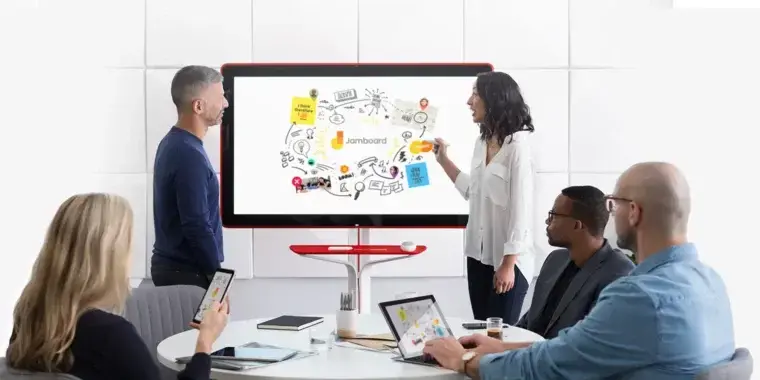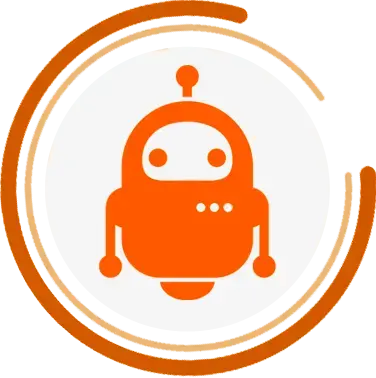The idea of the product is really great. The cost is prohibitive for all but major corporate customers.
Add in Google’s track record of killing products… just like this… and why would you invest?
Jamboard needs to be a tablet companion app first, and the hardware can follow. If they’re going to keep coming up with these halo products, then they need to support them for the long term. They also need to be willing to bite the bullet and give these away to lock people into Workspace because it’s unique and no one else does it.
Now it’s another reason to not buy in.
Now imagine if you bought one of these.
Is there any Google project outside of early search and Gmail they did right?
Maps and Photos are ok IMO. Slowly getting shittier though.
Maps were bought by Google from different company. Photos is AFAIK actually made by them.
Photos as an online photo gallery is their implementation yes but they bought up Picasa the desktop gallery early on. That software included tagging and I believe face recognition by the end.
Photos is cool but weirdly much lower than every other gallery app.
For local gallery. Simple gallery is better.
But for searching your photos, Google photos is still pretty great.
I highly suggest taking a look at Aves for a local gallery app. I use it in combination with Immich.
Yep those are the two I use!
- Android
- Drive
- Docs
- Translate
- Material
- Angular
- Kubernetes
- Flutter
- Go
- TensorFlow
- Pixel
And many others I miss. It’s a bit mind boggling how many things this corp has done. They have killed so many and there still so many yet, and many open source projects.
Well when you hoover up companies left and right…
dum, dum, dum…another one bite the dust…
deleted by creator
unfortunately, i don’t see them going anywhere anytime soon.
deleted by creator
if only. can they be a company that doesn’t be evil?
deleted by creator
My abstract for the linked article
Google is discontinuing Jamboard, its $5,000 digital whiteboard product, in late 2024. Jamboard was a large touchscreen that integrated with Google Workspace apps, allowing collaborative work. However, Google found that Jamboard users were a small portion of its Workspace customers. It will shut down the Jamboard apps and hardware, leaving existing customers with useless devices. Google recommends migrating Jamboard data to competitors’ whiteboard apps like Figma and Miro. While Jamboard was expensive initially, its annual fees and integration with Workspace subscriptions resulted in total costs as high as $7,000 per year.
The high recurring costs were not enough to sustain Jamboard long-term.
This comment was generated by a bot. Send comments and complaints via private message.
This is getting out of hand… now there are two of them!
But this one is more abstract? /s
Please PM me your disapproval. Enough of those and I will cease to perform these summaries. My goal is to be helpful not annoyance.
is there an opensource smartboard os they can use? or at least can they plug their computer into it ?
The dumb thing is it’s just using locked down android with some tweaks.
So they could pretty easily just loosen some of the locks that shouldn’t have existed in the first place and let you still use it.
Edit: I’m curious on the viability of getting a custom build on there. It would be cool if the community found a way to get these supported for the schools/organizations who are willing/able to deal with open source if that’s the only option, and interested parties could get their hands on the abandoned ones cheap. I’d definitely be interested in a slightly janky smart board.
I wonder if sufficient community backlash could at least pressure Google to make the process more reasonable, like it did with Chromebooks getting longer support.
Releasing the locks should tve the most basic courtesy. They spent all that money on the damn machine. It might as well be able to use it without your bullshit after you abandon it.🤷♂️
🤖 I’m a bot that provides automatic summaries for articles:
Click here to see the summary
The digital whiteboard could be drawn on using the included stylus or your fingers, and it even came with a big plastic “eraser” that would remove items.
The SoC was an Nvidia Jetson TX1 (a quad-core Cortex-A57 CPU attached to a beefy Maxwell GPU), and it had a built-in camera, microphone, and speakers for video calls.
People not in front of the touchscreen could launch the “Jamboard app” instead, letting them get in on the whiteboard action remotely, complete with live handwriting.
While Jamboard users make up a small portion of our Workspace customer base, we understand that this change will impact some of you, and we’re committed to helping you transition…" Yes, that’s right, “transition” is usually not something you have to consider when a company kills a hardware product, but the whole cloud system is going down, too, so all of your existing $5,000 whiteboards will soon be useless and you won’t be able to open the cloud data on other devices.
Google seems to feel particularly bad for the schools that bought into this, saying, “We will also work directly with educational institutions to compensate them for their Jamboard devices.”
People often ask about a recurring revenue stream when predicting what products will live and die, but even a $600-per-year fee attached to every sale wasn’t enough to keep Jamboard running.
Saved 64% of original text.
deleted by creator










